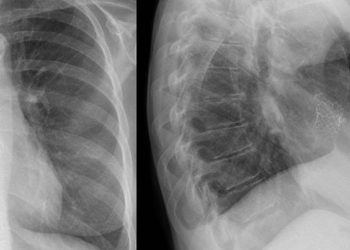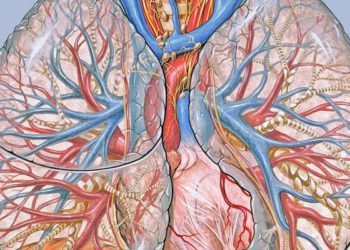Novel antiviral drug reduces influenza viral load
Image: PD/CDC
Key study points:
1. The novel antiviral drug, DAS181, a sialic acid inhibitor, significantly reduced viral load in patients with laboratory-confirmed influenza.
2. Patients who received DAS181 experienced a higher rate of adverse effects than those who received placebo; the most common of which was elevated alkaline phosphatase levels.
Primer: Influenza virus remains a significant cause of morbidity and mortality in the United States. National annual death rates from flu range from 3,000 to 50,000 patients each year. While seasonal vaccination remains the primary defense against the flu, the practice has several limitations. Many older patients and those with compromised immune systems or contraindications to receiving vaccine may not benefit from it. The seasonal vaccine may not cover one of the multiple circulating strains of flu. Furthermore, for patients with severe influenza infections therapeutic options remain limited because some flu strains have developed resistance to Oseltamivir, the first-line flu antiviral. Therefore, developing a novel treatment of influenza is imperative.
All strains of influenza virus enter respiratory epithelial cells by first binding sialic acid residues on the cell surface. In theory, disrupting this interaction should significantly inhibit the virus’ ability to infect. The novel agent DAS181 (Fludas) is an enzyme that binds and cleaves sialic acid and can be aerosolized to administer to patients through inhalation. This drug has been shown to have in vitro and in vivo activity against multiple strains of flu including H3N2, H5N1 and H1N1. This study was a phase II clinical trial evaluating the safety and antiviral activity of DAS181.
Background reading:
1. Historical perspective—emergence of influenza A (H1N1) viruses.
2. Targeting pandemic influenza: a primer on influenza antivirals and drug resistance.
This [randomized control trial] enrolled 177 patients with laboratory-confirmed cases of influenza. Patients were randomized to three treatment arms: single dose DAS181 (10mg for 1 day), multiple dose DAS181 (10mg daily for 3 days) and placebo.
The primary outcomes evaluated were viral load reduction and safety. Viral load samples were collected on days 1-8, while other clinical signs were monitored daily for 28 days.
Between days 1 and 2, viral loads were significantly reduced in patients of who received both multiple and single doses of DAS181 compared to placebo. Patients in the multiple dose arm continued to have reduced viral loads compared to placebo, while those receiving a single dose did not. Patients in both DAS181 groups had a higher incidence of adverse effects than placebo, the most common being an increased alkaline phosphatase level that normalized by the end of observation time.
In sum: This study suggests that DAS181 decreases viral load with few serious side effects. Limitations of the study include lack of power to demonstrate a reduction in clinical recovery time, and the exclusion of Oseltamivir-resistant viruses. Additionally, this study did not assess for differences in efficacy against various flu strains. Overall, this study provides clinical evidence supporting this sialic acid inhibitor’s activity against influenza in humans, and provides the groundwork for planning future clinical studies.
Click to read the study in Journal of Infectious Diseases
Click to read an accompanying editorial in Journal of Infectious Diseases
By [AS] and [MP]
© 2012 2minutemedicine.com. All rights reserved. No works may be reproduced without written consent from 2minutemedicine.com. Disclaimer: We present factual information directly from peer reviewed medical journals. No post should be construed as medical advice and is not intended as such by the authors or by 2minutemedicine.com. PLEASE SEE A HEALTHCARE PROVIDER IN YOUR AREA IF YOU SEEK MEDICAL ADVICE OF ANY SORT.



![2 Minute Medicine: Pharma Roundup: Price Hikes, Breakthrough Approvals, Legal Showdowns, Biotech Expansion, and Europe’s Pricing Debate [May 12nd, 2025]](https://www.2minutemedicine.com/wp-content/uploads/2025/05/ChatGPT-Image-May-12-2025-at-10_22_23-AM-350x250.png)

